Announcements
Award Descriptions & Forms
The USRA has created a number of awards to recognize individuals who have made important contributions to the USRA, and/or the University and/or society.
All awards are presented at the USRA celebration event in the spring or fall.
See the complete list of recipients (by award) USRA Award Recipients 1997-2025. (Note: there were no awards in 2022 and 2023.)
History
The USRA created this award in 2016.
Award Description
This award recognizes and expresses appreciation to persons who have retired from work at the University, but have continued to make research, scholarly, artistic or service contributions, whether associated with their University work, their scholarly work, their artistic work or their service work, at an exceptional level. Such contributions may not have been recognized by international, national, provincial or local bodies, but have substantially benefitted society.
Nominations
The Awards Committee invites nominations from the University Community; however, anyone may nominate a worthy candidate. If you know of someone whom you think is deserving of this award, please fill in a nomination form in pdf or Word format and send it to us. Nominations may be submitted electronically using the Contact USRA link below or mailed to the address on the form.
Nominations may be submitted at any time.
If you require additional information, please contact the Association.
History
The USRA established this award in the summer of 2013. It is named after the first recipient and awarded from time to time as circumstances dictate.
Award Description
This award recognizes a U of S retiree based on total contribution made to the university community over the period of the retiree's association with the University, including any contributions made during student years by a candidate who is an alumnus.
Nominations
The awardee will be selected by the USRA executive on the recommendation of the Awards Committee based on nominations received.
Nominations may be submitted at any time.
If you require additional information, please contact the Association.
These USRA members have made a significant contribution over a long period to the University of Saskatchewan Retirees Association and the University Community.
Candidates for this award are chosen by the executive committee.
History
In June 2022, the USRA Board agreed to pursue a new award to show USRA’s commitment to “ohpahotân | oohpaahotaan - Let’s Fly Up Together” Indigenous Strategy, gifted to the University in 2021, on behalf of Indigenous Peoples, as a companion to the University Plan 2025. An ad hoc committee was subsequently struck and undertook consultations with Indigenous leaders on campus and in the community and compiled relevant background for consideration by the Board. At a Special meeting in June 2023, the Board unanimously agreed to create this award. The award celebrates a USask individual retiree, or a pair or group that includes one or more USask retirees, whose efforts significantly advance one or more commitments of ohpahotân | oohpaahotaan - "Let’s Fly Up Together”.
Award Description
The award recognizes meaningful and significant contributions of a USask individual retiree, or a pair or group that includes one or more USask retiree, Indigenous or non-Indigenous, towards achieving one or more of the commitments of the foundational document “ohpahotân | oohpaahotaan - Let’s Fly Up Together” Indigenous Strategy for the University.
The commitments are: creating and realizing welcoming and safe spaces for Indigenous people; integrating wholistic healing support for the University’s Indigenous community; preserving and amplifying indigenous cultures, languages and learning; uplifting Indigenous people in University spaces and places; supporting active and respectful partnerships and engagement with Indigenous peoples; acknowledging, resourcing and investing in wise practices and activities (the creative spirit); and strengthening and sustaining pathways of access and success for Indigenous youth. The recipient(s) will embody the principles of reconciliation, healing, mutual respect and shared responsibility for creating positive and healthy relationships between Indigenous and settler societies (https://justice.gc.ca/).
Nominations
The Awards Committee invites nominations from the University Community; however, anyone may nominate a worthy candidate or group, along with a second nominator. Please fill in the nomination form for this Award in pdf or Word format and send it to us. Nominations may be submitted electronically using the USRA link or mailing address on the nomination form.
Nominations may be submitted at any time.
Selection Process
An ad hoc selection panel, including the members of the USRA Awards Committee, plus members of the Indigenous community, determined in consultation with Indigenous campus leaders, will advise the Awards Committee on selection of the recipient(s) from the nominations received. The selection panel will use criteria from ohpahotân | oohpaahotaan - "Let’s Fly Up Together” Indigenous Strategy and Indigenizing Academia (from USask Teaching and Learning, S. Calvez) in determining the recipient.
If you require additional information, please contact the Association.
History
In 1997, the USRA inaugurated a program to honour and express appreciation of recognition given persons who have retired from work at the University.
The first awards were given in 1997 to a backlog of 60 worthy recipients. Since then, more than 60 retirees have been recognized.
Award Description
The Prime of Life Achievement Award honours and expresses appreciation of persons who have retired from work at the University and, after their retirement, have been recognized for outstanding scholarly, artistic or service contributions. Such contributions will have been recognized by international, national, provincial or local bodies (for example, Order of Canada, Saskatchewan Order of Merit, honorary lifetime recognitions from national or provincial professional societies or associations, honorary degrees, national artistic commissions, Saskatoon Citizen of the Year).
Nominations
The Awards Committee invites nominations from the University Community; however, anyone may nominate a worthy candidate. Nomination forms are available in pdf and Word format. The nominations may be submitted electronically using the Contact USRA link below or mailed to the address on the form.
Nominations may be submitted at any time.
If you require additional information, please contact the Association.
Recipients
Continuing Contribution Award:
Michael Atkinson
Ross Wilson
Duff Spafford Award:
Ernie Olfert
Honorary Life Award:
Mary Dykes
Bryan Harvey
Eileen Harvey
ohpahotân | oohpaahotaan “Let’s Fly Up Together” Award:
Elder Roland Duquette
Ernie Walker
Prime of Life Achievement Award:
Bruce E. Coulman
Continuing Contribution Award:
Barry Brown
Jim Dosman
Bill McKay
Duff Spafford Award:
Honorary Life Award:
ohpahotân | oohpaahotaan “Let’s Fly Up Together” Award:
Continuing Contribution Award:
Angela Busch
Karim Nasser
Ron Steer
Honorary Life:
Prime of Life Achievement Award:
Continuing Contribution Award:
Continuing Contribution Award:
Honorary Life:
Prime of Life Achievement Award:
Winfried Grassmann
Dennis Johnson
Gordon Johnson
Continuing Contribution Award:
Honorary Life:
Prime of Life Achievement Award:
Bob Calder
J.R. (Jim) Miller
Vernon J. Racz
Henry Woolf
Continuing Contribution Award:
Jonathan Dimmock
David Brian Edney
Samuel Robinson
John Sheard
Honorary Life:
Prime of Life Achievement Award:
Continuing Contribution Award:
Alan B. Anderson
Winfried K. Grassmann
Bruce Reeder
Duff Spafford Award:
Prime of Life Achievement Award:
Glen S. Aikenhead
David Carpenter
Daniel Ish
Robin A.A. Morrall
Honorary Life Award:
Prime of Life Achievement Award:
Duff Spafford Award:
Honorary Life:
Prime of Life Achievement Award:
Robert W. Besant
James L. Blackburn
Don Cochrane
Zoltan Hajnal
Kailash Prasad
George Sofko
Honorary Life:
George Ivany
Norah Carey
Ted Turner
Jack Pringle
Art Sumner
Prime of Life Achievement Award:
Prime of Life Achievement Award:
Prime of Life Achievement Award:
Roma Franko
Delwyn Fredlund
Bryan Harvey
David Keegan
R. Lal Kushwaha
Che Kan Leong
Gwenna Moss
Paul Riemer
Prime of Life Achievement Award:
Roy Billinton
Lawrence C. Fowke
Cedric Gillott
Donald Cameron Kerr
John McLeod
Karim Nasser
Sarah Williams
Biographies not available at this time for the following recipients:
2006 Prime of Life Achievement Award:
Radostits, O.
2005 Prime of Life Achievement Award:
Kaplan, D.
Nikiforuk, P.
2004 Prime of Life Achievement Award:
Vella, F.
2003 Prime of Life Achievement Award:
Mills, I.
Shook, C.A.
2001 Prime of Life Achievement Award:
Crowle, M.
Dorotich, D.
2000 Prime of Life Achievement Award:
Green, M.A.
Nixon, H.R.
Wolfe, B.
Wyant, G.
1999 Prime of Life Achievement Award:
Emson, H.E.
Katz, L.
Slinkard, A.E.
Strayer, R.C.
1998 Prime of Life Achievement Award:
Dabbs, D.H.
Fedoruk, S.O.
Fulton, F.
Gerrard, J.W.
Harrison, M.
Howell, W.E.
Kennedy, E.J.
Newman, M.
1997 Prime of Life Achievement Award:
Allen, J.R.
Ambrose, E.R.
Anderson, C.S.
Bailey, D.A.
Baker, H.R.
Bakhshi, N.N.
Beck, R.N.
Bell, J.M.
Bigland, C.
Bornstein,E.
Brack, R.E.
Brewster, E.
Carter, R.C.
Cates, W.F.
Chakravarti, A.K.
Cotter, W.A.
Coupland, R.T.
Crawford, R.D.
Cribb, P.H.
Day, S.E.
Dommasch, H.S.
Egnatoff, J.G.
EI-Serafi, A.M.
Fedoroff, S.
Gray, D.M.
Greenough, P.R.
Hamilton, G.
Hass, G.
Henry, J.L.
Holmes, I.H.
Horlick, L.
Houston, S.C
Howard, T.M.
Hrudka, F.
Jackson, P.
Knott, D.R.
Kupsch, W.O.
Kyle, M.
Lane, P.R.
Lawson, P.A.
Laxdal, O.E.
MacLean, H.
Murphy, G.J.
Neis.V.
Rennie, D.
Richards, J.H.
Riekman, G.A.
Roe, W.F.
Sachdev, M.
Saunders, J.R.
Schmeiser, D.
Schnell, B.R.
Simpson, E.C.
Smith, C.
Sosulski, F.
St.Arnaud, R.
Stinson, E.W.
Wallace, W.
Whale, W.B.
Williams, C.M
USask Honorary Degrees
The USRA has an Honorary Degrees Committee that nominates individuals who have been recommended by our membership and other colleagues to receive the highest honour that the University bestows – an honorary degree. We can be proud that six of our nominees to the University Senate Honorary Degrees Committee were awarded degrees between 2020 and 2025.
- Dr. Vera Pezer, recognized for her scholarly achievements and service to the University, received an Honorary Doctor of Laws (LL.D.) degree at Spring Convocation 2025.
- Father André Poilièvre, a lifetime contributor to the community, including co-founding of STR8 UP, a healing and support program for those who wish to leave a criminal lifestyle, received an honorary degree at Fall Convocation 2023.
- Joy Kogawa, USask alumna and an award-winning Japanese-Canadian novelist, poet, and autobiographer, received an Honorary Doctor of Letters at Fall Convocation 2020.
- Dr. That Ngo, a biochemist who earned his Ph.D. at USask went on to improve testing of blood glucose levels. He received a Honorary Doctor of Science at Spring Convocation 2021.
- Dr. Bryan Harvey affectionately known as the "barley king" also received a Honorary Doctor of Science at Spring Convocation 2021. He is a Past-President of USRA and Past-President of its umbrella organization CURAC. He continues to serve on our Executive and that of CURAC.
- Wilf Keller, a USask alumnus and trailblazing researcher in agriculture, received his Honorary Doctor of Science at Fall Convocation 2021.
Dr. Vera Pezer
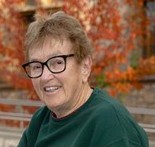 Dr. Vera Pezer, PhD, received the USask’s highest honor, an Honorary Doctor of Laws degree (LL.D.), on June 5, 2025. It recognized both her scholarly achievements and her service to the University. It strikes me that she could have received a Doctor of Science, as a pioneer in sports psychology, and a Doctor of Letters as an author of four books.
Dr. Vera Pezer, PhD, received the USask’s highest honor, an Honorary Doctor of Laws degree (LL.D.), on June 5, 2025. It recognized both her scholarly achievements and her service to the University. It strikes me that she could have received a Doctor of Science, as a pioneer in sports psychology, and a Doctor of Letters as an author of four books.
Born the eldest of four children of a middle-class family in rural Saskatchewan, she enrolled in the College of Arts and Science in the late 1950’s. She stated in her address to graduates at convocation, that she learned many lessons for which she did not receive grades: avoiding plagiarism, collaborating with fellow students and time management. All of which served her well in her distinguished career. She went on to earn a master’s degree in psychology and a PhD in sports psychology. She accepted an appointment as a faculty member in the Department of Psychology, then became Assistant Dean and Director of Student Counselling. From 1991 to 2001 she served as Associate Vice-President Student Affairs. Her Chancellor’s portrait in the Peter MacKinnon Building depicts her surrounded by students emphasizing the esteem in which she was held.
Vera’s athletic prowess and her voluntary service to organizations outside the university are legendary. We are very proud that she has accepted nomination as president of our association.
We are also proud that she joins a long list of Honorary Degree recipients recommended to the Senate by USRA.
Father André Poilièvre
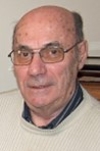
"Originally from Prud'homme, Saskatchewan, André Poilièvre is the youngest of three siblings. He holds a baccalaureate in Theology. He also completed adult education courses in Paris and Toronto. During his six years with Arctic Cooperatives Ltd. in Nunavut, he developed and implemented training programs for Inuit and Dene management trainees in Indigenous-owned co-operative enterprises. Father Poilièvre moved to Saskatoon and was ordained as a Catholic priest in 1962. He taught at St. Paul’s and Joe Duquette (now Oskāyak) high schools, and also served as a chaplain at Saskatoon City Hospital and the Saskatoon Correctional Centre."
Father André has a lifetime of contributions to society, including co-founding of STR8 UP, a healing and support program for those who wish to leave a criminal lifestyle. Quoting from Dr. Robert Henry (letter of support), Father Poilièvre “continues to push us in the field of Indigenous justice, criminal justice, street lifestyles, and gangs to improve the lives of some of the most marginalized in our communities.”
"Father Poilièvre was named to the Order of Canada in 2008 for his lifelong contributions as an educator, counsellor and chaplain, and for his remarkable work in helping more than 500 individuals leave street gangs and start new lives. The Order of Canada is one of a number of honours that Poilièvre earned through a career of contributions to the community, including the Saskatoon YMCA Peace Medal Award in 2007, the Queen Elizabeth II Diamond Jubilee Medal in 2013, and the St. Thomas More College Recognition Award in 2015."
Joy Kogawa
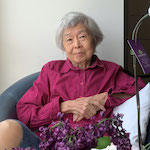 Joy Kogawa, is a second generation Japanese-Canadian born in Vancouver. As a young child, she was interned with her family and other Japanese-Canadian citizens and landed immigrants in primitive camps and old mining towns in the mountainous interior of British Columbia. Their West Coast homes, businesses, and other property were seized and sold, ostensibly to support their internment. The men were forced into hard labour building roads and other infrastructure in the BC interior, and at war’s end, the families in this once tight- knit immigrant community were barred until 1949 from returning to the coast to rebuild their lives. Instead, they were either deported to war-torn Japan or dispersed across Canada to work in often harsh and impoverished conditions, without freedom or means to move. Joy’s family laboured in the beet fields of Alberta near Coaldale, where she went to high school. Later, she picked up enough college education, at the University of Alberta in Calgary (1954), and the Anglican Women’s Training College and the Royal Conservatory of Music in Toronto (1956), to become an elementary school teacher.
Joy Kogawa, is a second generation Japanese-Canadian born in Vancouver. As a young child, she was interned with her family and other Japanese-Canadian citizens and landed immigrants in primitive camps and old mining towns in the mountainous interior of British Columbia. Their West Coast homes, businesses, and other property were seized and sold, ostensibly to support their internment. The men were forced into hard labour building roads and other infrastructure in the BC interior, and at war’s end, the families in this once tight- knit immigrant community were barred until 1949 from returning to the coast to rebuild their lives. Instead, they were either deported to war-torn Japan or dispersed across Canada to work in often harsh and impoverished conditions, without freedom or means to move. Joy’s family laboured in the beet fields of Alberta near Coaldale, where she went to high school. Later, she picked up enough college education, at the University of Alberta in Calgary (1954), and the Anglican Women’s Training College and the Royal Conservatory of Music in Toronto (1956), to become an elementary school teacher.
Remarkably, her subsequent career as a creative writer (publishing 6 books of poetry, 4 novels, 2 children’s books, an autobiography, and an augmented reality app for the National Film Board, among other works) has previously won her honorary degrees from eight Canadian Universities: LL.D. (Lethbridge 1991; Simon Fraser 1993; Queen’s 2003; Windsor 2003), Doctor of Divinity (Knox College, UToronto, 1999), D.Litt. (Guelph 1992; UBC 2001; UVictoria 2017).
She has been frequently supported as a fellow, visiting scholar, or writer-in- residence, recognized for her lifetime achievement (most recently this fall by the BC Lieutenant Governor’s Award for Literary Excellence), or honoured with a medal, a plaque, a proclamation, or a special day (e.g. Joy Kogawa Day and Obasan Cherry Tree Day in Vancouver).
Historic Joy Kogawa House in Vancouver has been preserved as a venue for visiting writers-in-residence and public tours, literary readings and conferences, through the efforts of Joy and friends to save her early childhood home. It is an historic example of the comfortable family dwellings that Japanese-Canadians were forced to leave behind in World War II.
Beyond many literary awards, other honours recognize Joy’s services to the Japanese-Canadian community, or her social activism against racism and poverty in Canada. She has been invested as a Member of the Order of Canada (1986), Order of British Columbia (2006), and presented by Japan with its distinguished Order of the Rising Sun (2010).
Joy Kogawa’s first novel Obasan, based loosely on her own childhood experiences of internment, helped to achieve Prime Minister Brian Mulroney’s 1988 Acknowledgement in Parliament of the Canadian Government’s injustices to Japanese-Canadians and their redress through a $300 million reparation package. Obasan is now a classic textbook in Canadian high school and college English classes and has been adapted to children’s books and a touring opera. Her second and third novels, Itsuka and Emily Kato, loosely trace the political processes by which redress was achieved and their effects on the Japanese-Canadian community, especially its elders and activists. Joy has also been an activist for all impoverished and disadvantaged Canadians, especially through her intensive volunteer work in Vancouver and Toronto, where she has mainly resided. She has been committed to supporting her diverse communities through love and her own hard work.
The D.Litt. to be awarded at our Fall Convocation at last proudly claims Joy Kogawa as an alumna of our own University. It comes soon after her recent suggestion in an interview that she is now ending her writing career.
Dr. That Ngo
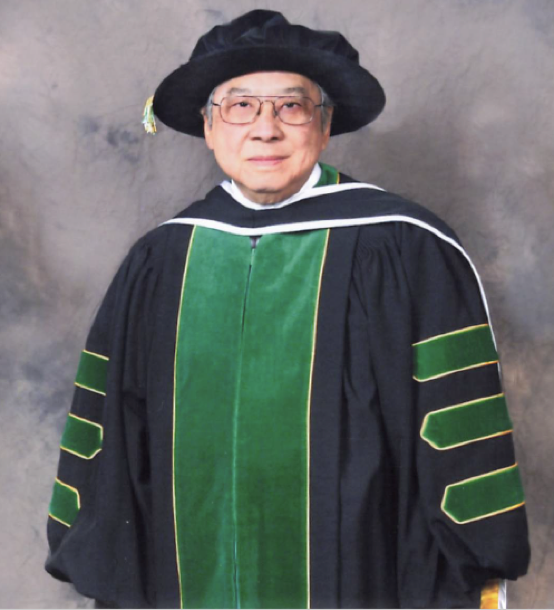 Dr. That received an Honorary Doctor of Science at the 2021 Spring Convocation. He was nominated by USRA; Dr. Frank Vella, Professor emeritus, did most of the heavy lifting supporting his nomination. Dr. That, a native of Indonesia, arrived in Saskatchewan in 1966. He enrolled in the Honors Biochemistry program and found he liked the cool, dry prairies. He continued his education here, completing his Ph.D. in Biochemistry in 1973. After post-doctoral fellowships in Ottawa, New York and Montreal he accepted a position with the Ames company research laboratories in Illinois. There he helped develop the first accurate finger prick blood glucose measuring system: a technology that changed the lives of millions of diabetics. He then worked for a number of pharmaceutical research companies, always maintaining his love of academia. He published 140 papers in peer reviewed journals, was awarded 14 patents, edited 3 books, published 2 others (including a book of poetry) and received many honors including a USask Alumni of Influence Award in 2016. From 1999 to 2003 he was President and CEO of Axiom Pharmaceuticals, a company that guides small and medium size enterprises, in getting revolutionary diagnostic and therapeutic products from bench, to bedside, to market.
Dr. That received an Honorary Doctor of Science at the 2021 Spring Convocation. He was nominated by USRA; Dr. Frank Vella, Professor emeritus, did most of the heavy lifting supporting his nomination. Dr. That, a native of Indonesia, arrived in Saskatchewan in 1966. He enrolled in the Honors Biochemistry program and found he liked the cool, dry prairies. He continued his education here, completing his Ph.D. in Biochemistry in 1973. After post-doctoral fellowships in Ottawa, New York and Montreal he accepted a position with the Ames company research laboratories in Illinois. There he helped develop the first accurate finger prick blood glucose measuring system: a technology that changed the lives of millions of diabetics. He then worked for a number of pharmaceutical research companies, always maintaining his love of academia. He published 140 papers in peer reviewed journals, was awarded 14 patents, edited 3 books, published 2 others (including a book of poetry) and received many honors including a USask Alumni of Influence Award in 2016. From 1999 to 2003 he was President and CEO of Axiom Pharmaceuticals, a company that guides small and medium size enterprises, in getting revolutionary diagnostic and therapeutic products from bench, to bedside, to market.
Dr. Bryan L. Harvey, O.C., S.O.M., Ph.D., F.A.I.C., P.Ag.
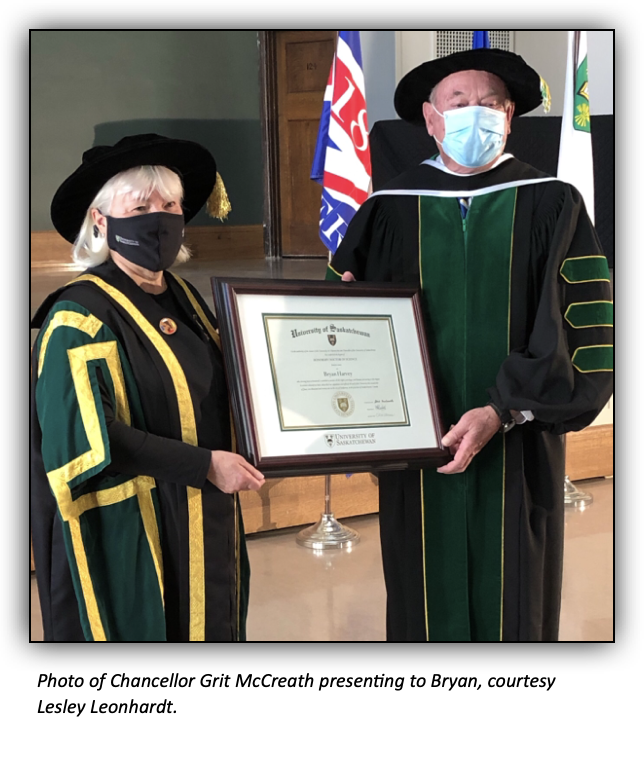 Bryan Harvey is a world-renowned scientist, who has greatly contributed to the Canadian agricultural economy, to his field of expertise and to the community. He has had an immense impact as a plant breeder, who, with colleagues, produced over 50 varieties of high-quality barley, including Harrington, resulting in billions of dollars in returns to western Canada. Academic and administrative accomplishments are equally significant, including his key role in establishing the U of S Crop Development Centre as a trailblazer in plant breeding, and co-authoring the University’s research intensiveness plan. His extraordinary public service includes outstanding leadership for a multitude of national and international delegations, missions and organizations, including the United Nations and the International Institute for Tropical Agriculture. He has shaped Canada’s superior regulatory system as relates to variety registration, intellectual property and breeder’s rights. At home, his contributions include long-time service with Rotary, Charter Presidency of Saskatoon’s Crohn’s and Colitis Foundation and Presidencies of the U of S Alumni and Retirees Associations. Bryan has been called a ‘true Prairie hero,’ and is most proud of his working-class family who instilled his great love of plants. He shared his vast experience, grassroots perspectives, importance of diligent leadership, and love of discovery and of the USask with graduating students at Spring Convocation 2021. He is recipient of local, provincial, national and international awards, medals, hall and wall of fame honours, including investiture as Officer of the Order of Canada. He continues to be highly and widely sought after for his expertise. We are so proud to claim him as a graduate and Professor Emeritus of USask and a long-time member and leader with the USRA.
Bryan Harvey is a world-renowned scientist, who has greatly contributed to the Canadian agricultural economy, to his field of expertise and to the community. He has had an immense impact as a plant breeder, who, with colleagues, produced over 50 varieties of high-quality barley, including Harrington, resulting in billions of dollars in returns to western Canada. Academic and administrative accomplishments are equally significant, including his key role in establishing the U of S Crop Development Centre as a trailblazer in plant breeding, and co-authoring the University’s research intensiveness plan. His extraordinary public service includes outstanding leadership for a multitude of national and international delegations, missions and organizations, including the United Nations and the International Institute for Tropical Agriculture. He has shaped Canada’s superior regulatory system as relates to variety registration, intellectual property and breeder’s rights. At home, his contributions include long-time service with Rotary, Charter Presidency of Saskatoon’s Crohn’s and Colitis Foundation and Presidencies of the U of S Alumni and Retirees Associations. Bryan has been called a ‘true Prairie hero,’ and is most proud of his working-class family who instilled his great love of plants. He shared his vast experience, grassroots perspectives, importance of diligent leadership, and love of discovery and of the USask with graduating students at Spring Convocation 2021. He is recipient of local, provincial, national and international awards, medals, hall and wall of fame honours, including investiture as Officer of the Order of Canada. He continues to be highly and widely sought after for his expertise. We are so proud to claim him as a graduate and Professor Emeritus of USask and a long-time member and leader with the USRA.
Wilf Keller
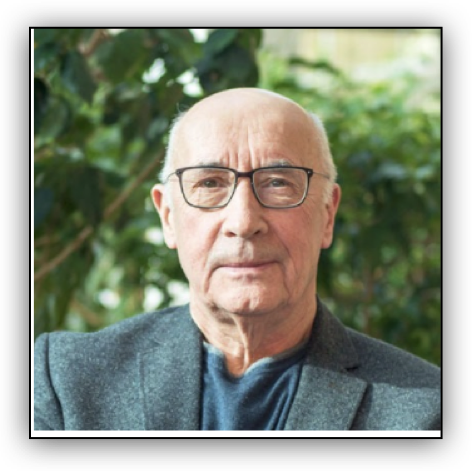
Wilf Keller (PhD) was awarded an Honorary Doctor of Science on November 10, 2021. Born in Melville, SK, he earned his BSA (1969) and his PhD (1972) majoring in crop science at the University of Saskatchewan. After a post-doctoral fellowship at the Max Planck Institute in Germany he accepted a position with Agriculture Canada where he quickly began contributing to the agriculture industry through trailblazing research endeavours.
Keller helped lead numerous major research initiatives, including the application of genomics in canola breeding that had a tremendous impact and contributed to making the crop a made-in-Canada success story. Keller’s work also contributed to the development of the first herbicide-tolerant canola variety in North America. A recognized global leader in agricultural biotechnology research, management and promotion, Keller has worked with the major research players in the industry, from Agriculture and Agri-Food Canada to the National Research Council, to Genome Prairie, and most recently served until 2020 as president and CEO of Ag-West Bio Inc., a non-profit organization in Saskatoon that advocates for agriculture science. Keller currently serves as vice-president of outreach with the Agri-Food Innovation Council, after previously serving as the board chair. Among his many accomplishments, Keller was as a member of the group that launched the Saskatchewan-based Protein Industries Canada Supercluster, projected to take advantage of the growing plant-based protein market and contribute billions to the Canadian economy. The supercluster was one of five proposals selected out of 55 applications to share in $950 million in federal funding, attracting both capital investment and industry-leading scientists to the city. During his remarkable career, Keller has been honoured with multiple major awards, including the Saskatchewan Order of Merit – the province’s highest honour – in 2015, the Saskatchewan Agriculture Hall of Fame in 2017, the Canadian Agriculture Hall of Fame in 2018. Keller has also received three National Research Council Outstanding Achievement Awards, as well as Lifetime Achievement Awards from AgWest Biotech and from The Society for In Vitro Biology.
